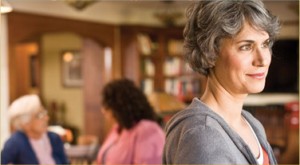 In the first of this two part series on caregiving to Alzheimer’s or other dementias I spoke to what kinds of people will have logged the nearly 20 million hours of caregiving to patients with these dementias during the year. And if you are one of those caregivers to a loved one whose mental faculties are failing, there may be some comfort in knowing you are not alone. In this posting, however, I would like to share some advice from the perspective of a geriatric care manager who helps to care for both the dementia patient AND the caregiver to the patient.
In the first of this two part series on caregiving to Alzheimer’s or other dementias I spoke to what kinds of people will have logged the nearly 20 million hours of caregiving to patients with these dementias during the year. And if you are one of those caregivers to a loved one whose mental faculties are failing, there may be some comfort in knowing you are not alone. In this posting, however, I would like to share some advice from the perspective of a geriatric care manager who helps to care for both the dementia patient AND the caregiver to the patient.
Take Care of You. It has become something of a mantra for me, and I cannot say it too much: Take care of the caregiver. If you as a caregiver to a loved one with some form of dementia do not take care of yourself, you will not be able to take care of your loved one. This is what allows everything else to happen; caring for the caregiver is job one!
Learn All You Can. You may have known your loved one for decades, but the dementia is a stranger to you. Everyone’s journey with Alzheimer’s or other dementias will be different, based in part on the personality they had when the symptoms of the disease first appeared. But the condition will make things progressively different. Get educated.
Be Realistic. This is about you and knowing your loved one would not want you to give up your life to care for theirs. And it is about accepting the changing capabilities of your loved one as the condition progresses.
Don’t Isolate Yourselves. It may seem challenging to do what you used to do as a family, but don’t retrench so far that you fear even venturing out of the house. Do all that you can do and simply accept the limitations on some of the activities.
Prepare the Paperwork. End of life discussions are always at least a bit awkward, but they will not get easier with the passing of time and further erosion of mental faculties. Most everyone will have a will, but you will also want a living will, powers of attorney and Do Not Resuscitate (DNR) orders in place. Be sure that the living will and the DNR are in all your loved one’s medical records in the event of an unexpected hospitalization.
Don’t Go It Alone. This is an extension of number one above. Throughout this journey you will benefit from having others with whom you can relate what you are feeling. This could be support groups of other caregivers like you or you may feel more comfortable talking with a counselor who will let you know that it is simply okay to feel as you do.
We may not have any cures for any of the dementias yet, but science is getting better at understanding how to postpone the progression of Alzheimer’s and some other dementias. Professionals in this are also are getting a lot better about helping people to understanding the conditions and how both the patients and the caregivers can cope with them. Some of my “go to” resources include http://www.webmd.com and the Alzheimer’s Association (http://www.alz.org/). This latter has state and local chapters who can offer personal help to both caregivers and their loved ones where they live.
Charlotte Bishop is a Geriatric Care Manager and founder of Creative Care Management, certified professionals who are geriatric advocates, resources, counselors and friends to older adults and their families in metropolitan Chicago. Please email your questions to info@creativecaremanagement.com.







